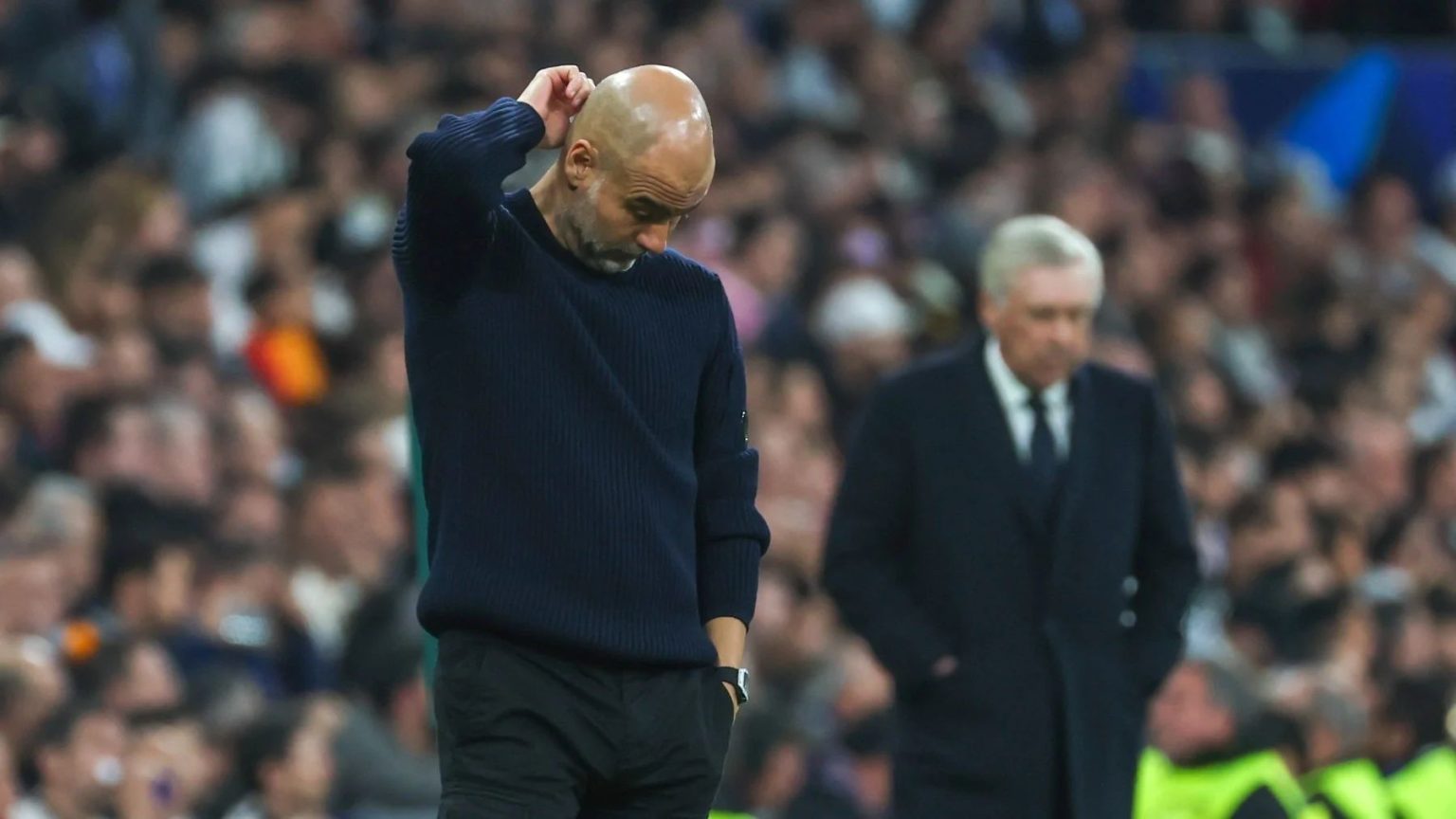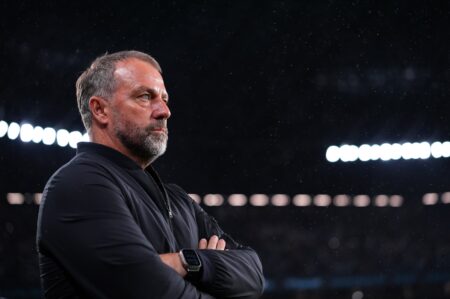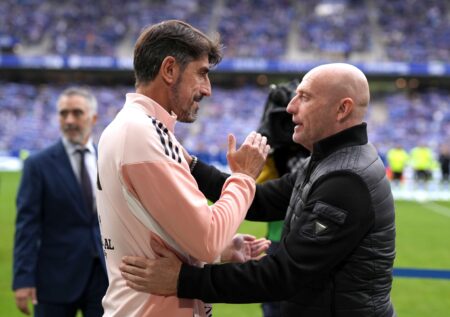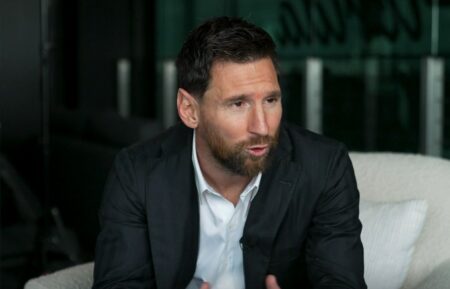Real Madrid in the Crosshairs: UEFA’s Response to Homophobic Chants
Real Madrid, one of the most prestigious football clubs in the world, is facing a potential partial stadium closure due to homophobic chants directed at Manchester City manager Pep Guardiola during their Champions League play-off match. The chants, which have been a recurring feature of Guardiola’s visits to the Santiago Bernabeu since his playing days with Barcelona, have finally caught the attention of UEFA, resulting in a fine and a suspended sentence. According to reports from Sport, UEFA has penalized Real Madrid with a €30,000 fine and issued a two-year suspended sentence for a partial stadium ban. Should the club’s fans violate regulations again within this period, 500 seats in the Bernabeu will be closed for the next European competition game. This punishment, while relatively light, sends a clear message that such behavior will not be tolerated in European football.
The Chant and Its Origins
The specific chant that UEFA found to be in violation of its regulations was loud and clear during Real Madrid’s 3-1 victory over Manchester City. The lyrics, which were repeated multiple times, were particularly distressing: "Ay, Guardiola, how thin you look. First it was the drugs. Today you can be seen around Chueca." This chant references the HIV/AIDS crisis that devastated the gay community in the 1980s and 1990s, a period marked by significant loss and stigma. Chueca, a neighborhood in Madrid known for its vibrant LGBTQ+ community, is also mentioned, further emphasizing the homophobic nature of the lyrics. The chant not only targets Guardiola’s appearance but also makes derogatory insinuations about his sexual orientation, which he has publicly denied in the past.
UEFA’s Stance on Discrimination
UEFA’s regulations are stringent when it comes to discriminatory behavior in the stands. The governing body states that any person or group insulted on the basis of race, religion, origin, skin color, or gender must be met with "a suspension lasting at least ten games or a specified period of time, or any other appropriate sanction." While the fine and the suspended partial closure are significant, they are perhaps less severe than the full closure or extensive bans that could have been imposed. This decision reflects UEFA’s ongoing efforts to address and mitigate discrimination in football, albeit with a measured approach that considers the broader context and the club’s history.
Real Madrid’s Past Efforts and Current Silence
Real Madrid has a mixed record when it comes to addressing discrimination. The club has made public statements condemning such behavior in the past, particularly regarding racial abuse. Earlier this season, several Real Madrid fans were banned from the stadium for racially abusing Barcelona players, demonstrating the club’s willingness to take action in some instances. However, the current incident highlights a gap in their response to homophobic abuse. Despite the widespread nature of the chants and the clear violation of UEFA’s regulations, Real Madrid has yet to issue a public statement or take any additional measures to address the issue. This silence is notable and has been met with criticism from various quarters, including fans, players, and LGBTQ+ advocacy groups.
The Broader Impact of Discriminatory Chants
The impact of these discriminatory chants extends beyond just the immediate match or the individuals targeted. They create a hostile environment for players, fans, and the broader community, undermining the spirit of inclusivity and sportsmanship that football is supposed to embody. For Guardiola, who has been a prominent figure in football for decades, the chants are a painful reminder of the prejudices and stereotypes that many in the LGBTQ+ community continue to face. The fact that such chants have persisted over the years, despite the club’s previous efforts, underscores the need for a more comprehensive and long-term strategy to tackle discrimination in the stadium.
Moving Forward: A Call for Action
To truly address the issue of discrimination, Real Madrid must take proactive and meaningful steps. This includes not only issuing a strong and public condemnation of the chants but also implementing educational programs and stricter penalties for fans who engage in such behavior. The club should also work closely with UEFA and local authorities to monitor and enforce regulations more effectively. By doing so, Real Madrid can send a powerful message of zero tolerance for discrimination, fostering a safer and more inclusive environment for everyone who enjoys the game. The football community, including players, fans, and clubs, must collectively work towards eliminating all forms of discrimination, ensuring that the pitch remains a place of respect and equality.











